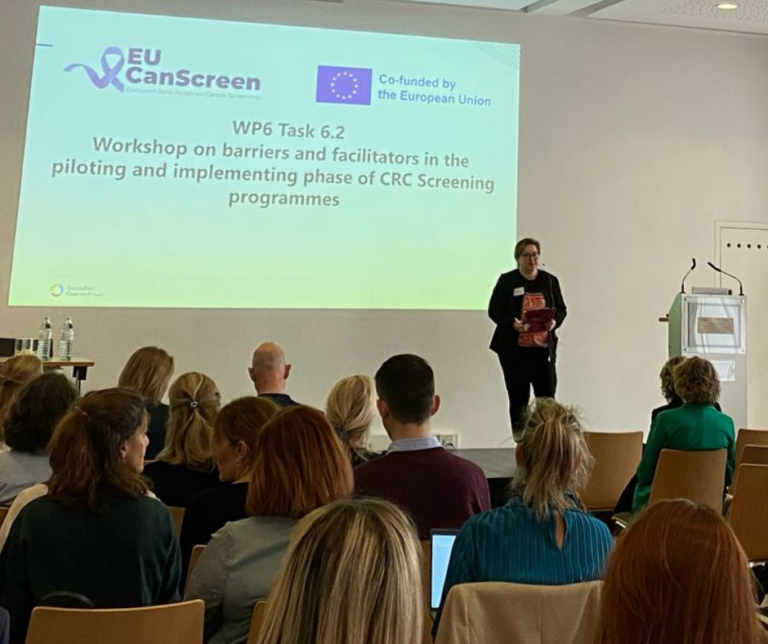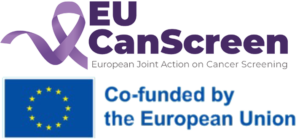Vienna, Austria, 31.03.2025 – 01.04.2025
More than 1000 cases of colorectal cancer occur in Latvia each year – European experts call for early detection
On 31 March and 1 April, an international workshop on barriers and facilitators in the piloting and implementing phase of CRC Screening programmes in Vienna, Austria, will bring together experts from European countries to share experiences and work together to find solutions for effective screening strategies for early detection and prevention of colorectal cancer. Given that colorectal cancer remains one of the most common and deadliest cancers worldwide and in Latvia, the aim of the meeting is to promote early diagnosis, as its detection significantly increases treatment success and patient survival.
According to the Centre for Disease Prevention and Control (CDPC) of Latvia, more than 1,000 new cases of colorectal cancer are detected in Latvia every year, with 1,106 cases registered in 2023. Unfortunately, more than 600 people in Latvia lose their lives each year (623 deaths in 2023). Delayed diagnosis is a major problem. According to information collected by the CDPC, only about 10-15% of colorectal cancer cases in Latvia are detected at an early stage, which means that in most cases the disease is diagnosed late, when treatment is more complicated and the prognosis is worse.
Latvia has had a state-funded colorectal cancer screening programme since 2009 and the response rate is gradually increasing. The National Health Service’s statistics on colorectal cancer screening response rates for the 12 months to 2024 show that screening coverage has increased from 6.95% in 2009 to 26.5% in 2024, but the European Commission’s recommendations call for coverage of at least 45%.
National experiences and the importance of cooperation
At the opening of the workshop, representatives of the Austrian National Institute of Public Health stressed that one of the main challenges for the European Union (EU) is to ensure that screening programmes across Europe are accessible to everyone – so that all citizens have equal access to early detection and treatment of colorectal cancer. This objective is in line with the European Cancer Plan and the new EU approach to cancer screening.
The seminar programme includes an overview of the situation in Europe and stories from several countries: experts from the Netherlands, Iceland, Norway, Spain and Sweden share lessons learned from their screening programmes. For example, the Swedish representatives stress the importance of data recording and evaluation to continuously improve the quality of their programmes. Workshop participants also work in smaller groups in a “World Cafe™” format to discuss issues such as data use, promoting public participation and improving outreach materials for screening. The workshop highlights how recent technological advances – such as artificial intelligence and data analysis – are opening up new opportunities for early cancer detection.
“Today, technological developments are continuously offering more and more precise and cost-effective solutions,” said the seminar, underlining the importance of creativity in integrating these innovations. Experts also stressed the need for closer cooperation between countries and institutions in the fight against cancer. “Discussing the obstacles and opportunities of screening programmes is crucial, because by working together we can overcome all difficulties,” said the speakers, calling for sharing experiences and finding common solutions.
Prevention and a call to citizens
Health experts remind us that a large proportion of colorectal cancers are preventable. Studies show that more than 55% of new cases could be prevented by living a healthier lifestyle – this means eating a healthy diet, getting enough exercise and giving up harmful habits (smoking, excessive alcohol consumption, etc.). Sate funded screening helps detect colorectal cancers at an early stage or even at a pre-cancerous state, when treatment is most effective. “Early screening can save lives – take the time to live longer,” remind CDPC experts, referring to the slogan of the 2024 awareness campaign in Latvia to encourage people to take an active part in cancer screening and to have regular health checks. However, challenges remain in raising awareness and encouraging response. To address these challenges, the Ministry of Health, in cooperation with sectoral institutions, has developed the Oncology Improvement Plan 2025-2027, which includes measures to improve access to cancer screening and other aspects of the process.
Latvian health experts urge the public to take care of their health – especially people over 50 years of age should not ignore invitations to state-funded colorectal cancer screening and make sure they take advantage of the opportunity to have preventive check-ups. Early detection of cancer significantly increases the chances of beating the disease, so everyone is encouraged to make time for their health today.

Subscribe to our newsletter to get news and updates.
Subscribe to our newsletter to get news and updates.

The general objective of EUCanScreen is to assure sustainable implementation of high-quality screening for breast, cervical and colorectal cancers, as well as implementation of the recently recommended screening programs – for lung, prostate and gastric cancers. EUCanScreen will facilitate the reduction of cancer burden and achieving equity across the EU.
This project has received funding from the European Union’s EU4HEALTH Programme under the Grant Agreement no 101162959











